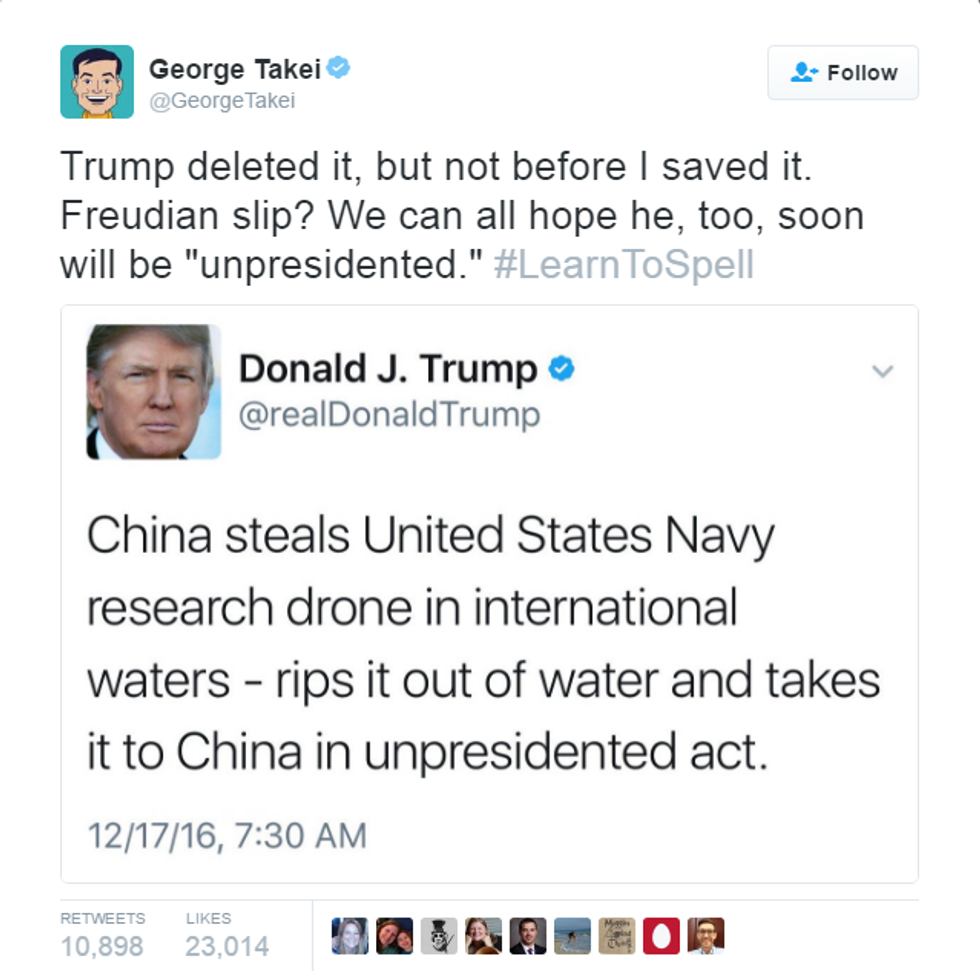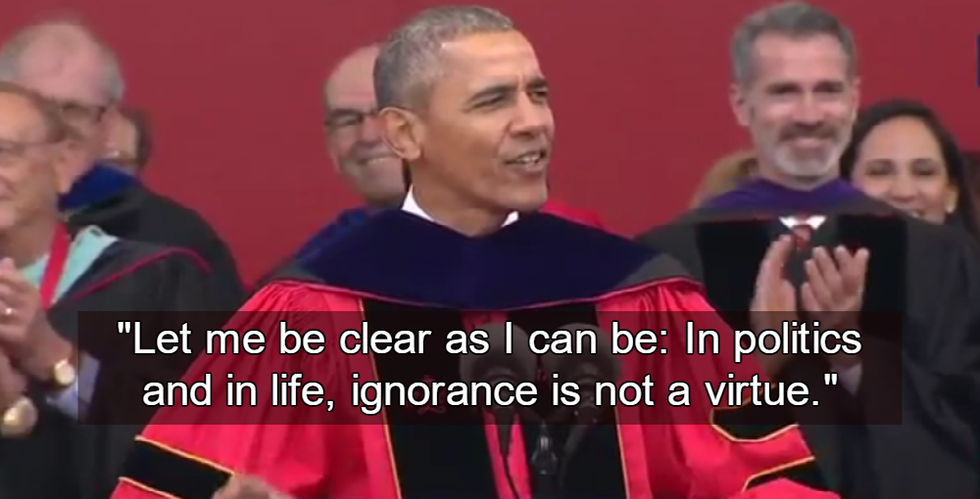On Saturday, Trump sent out a tweet about the Chinese seizure of an underwater US drone, calling it "unpresidented." He later corrected the tweet to instead say "unprecedented."
In response, many news articles were written about the occurrence with superficial analysis, and many tweets were sent mocking the error. In particular, George Takei tweeted out a screenshot of it, with the hashtag #LearnToSpell.

Spelling is primarily important for ease of communication -- it is simply easier to read words when they follow a standardized spelling. The same argument applies to grammar. Beyond that, however, it is arguable that the primary function of proper spelling and proper grammar is as much a social signifier of education and intelligence -- though not a very good one, given how many highly educated, brilliant people still often make mistakes in spelling.

This takes place in a context where a large component of Trump's popularity is the extent to which he is an anti-establishment candidate, and in order to do so has taken up anti-intellectualism as a rhetorical tool. Admittedly, it is possible believing this is intentional gives him too much credit.
Nevertheless, it is worth reconsidering the desire to mock errors in spelling at a time when so many already feel excluded from and opposed to an intellectual elite. In many ways, when mocking certain features of Trump, we are also mocking those of his supporters who have the same characteristics and who, if one could forgive them their flaws, desperately need to be called in.



















